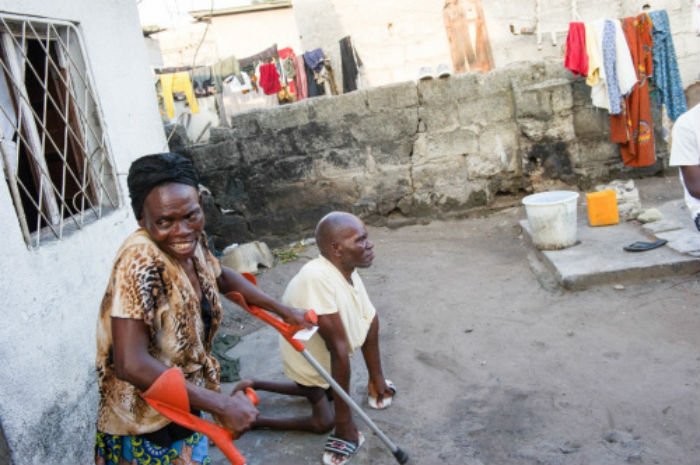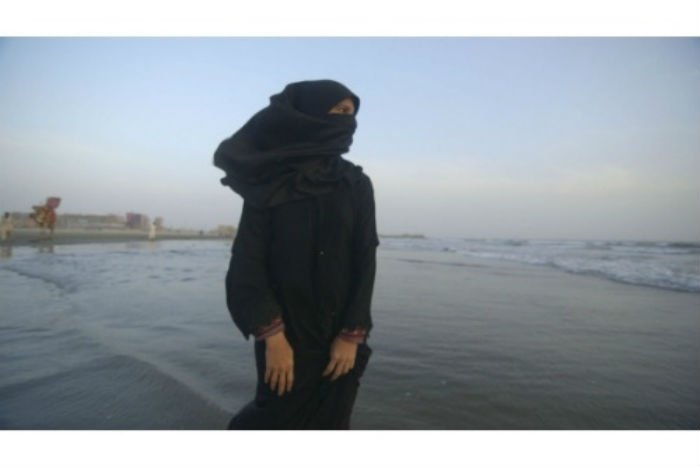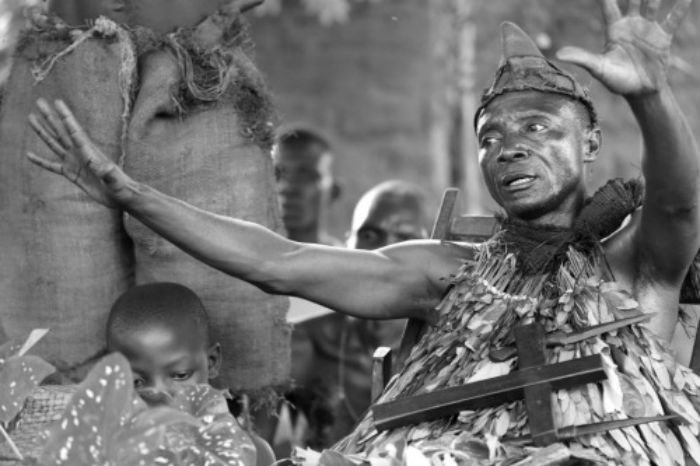After overcoming the geographic and economic challenges of delivering life-saving vaccines, the last barrier to immunisation can sometimes be the hardest: vaccine hesitancy. Parents’ reluctance to immunise their children is often rooted in misinformation, which leads to fear of harm to their loved ones. It can be difficult to dispel.
This issue is not limited to the developing world, as a recent resurgence of measles in the United States indicates. But wherever hesitancy arises, grassroots advocates play a critical role in overcoming it. Ahead of World Polio Day, we explore how those campaigning for polio vaccination in their local communities work to build trust and inspire parents to immunise their children.
Community advocates, Democratic Republic of Congo

Marie-Josee and her husband Evariste live in the Lemba neighbourhood of Kinshasa in the Democratic Republic of Congo (DRC). Both contracted polio as young children. At the time, the disease was considered a work of sorcery. “People said my uncle had cast a spell,” says Marie, “they said it was witchcraft. They said he’d done it so I wouldn’t marry. It was a terrible time.”
Now they use their experiences to help keep polio out of their country. “We try to explain the importance of vaccination and the problems polio can cause. And we are pretty much living witnesses. We testify to raise awareness of the masses”, says Evariste.
Although the DRC has been polio free since 2011, uptake of the vaccine remains critical to prevent a re-emergence.
Health worker, Pakistan

Working door-to-door to simultaneously persuade families and administer vaccines is tough, but so are the women who do it. In December 2012, polio vaccinator Gulnaz Sherazi’s niece and sister-in-law were shot dead while delivering polio vaccines in Karachi. Despite her personal loss, Gulnaz has begun teaching two of her other nieces to become polio vaccinators too.
She remains steadfast in her commitment to achieve polio eradication in Pakistan, where over 80% of global cases occurred in 2014. “Their sacrifice will never be in vain,” she maintains, “We will continue our mission. One by one we will light the candles and spread the light all over Pakistan.”
The local advocacy efforts of Gulnaz and others like her are playing an important role in overcoming resistance to the polio vaccine – a critical step towards eliminating the disease in Pakistan.
Religious leader, Democratic Republic of Congo

In the south-eastern province of Katanga in DRC, refusal rates for polio vaccination used to be high. In 2013, 50 per cent of unvaccinated children in the area had access to the vaccine but still risked contracting polio because their parents did not want them immunised.
Since 2009 UNICEF has worked with Pastor Paul 2, who holds valuable influence over Katanga’s Filadelphie Kitwala Community. The Community rejects what they see as Western ways of life, including medical technologies such as the polio vaccine.
After years of dialogue with UNICEF and others, Pastor Paul is now working to build trust in vaccines among his followers. He suggested that the services should come from within the community and even sent three of his sons to receive free training in hygiene and disease prevention. As a result, vaccine acceptance is on the rise.
This article was contributed by Rachael Hore in support of Gavi.